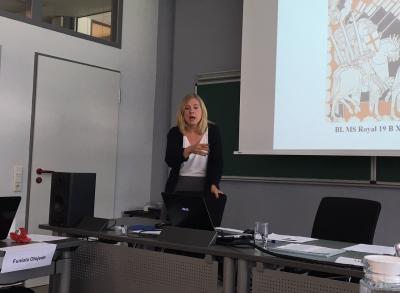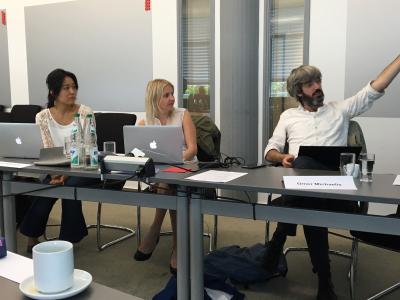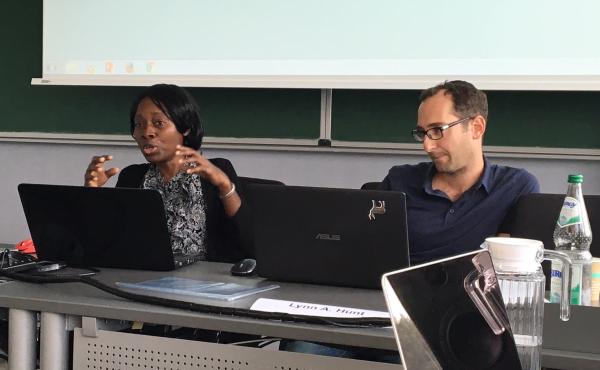On August 5, 2016, Lynn Hunt focused on new frames of personhood emerging in the 18th century, which crystallized in the vision of man as a separate autonomous entity that can interact with society but is not possessed by it. Lynn drew on Picart’s and Bernard’s famous 18th century book on world religions – a “book that changed Europe.” From there, she elaborated on other frames of personhood, such as secularism or the capacity for empathy.
Sini Kangas’s presentation concentrated on special forms of medieval personal rights, addressing the legal status of non-combatants in medieval Christian holy war. Relying on various religious and legal medieval texts presented by Sini, the fellows explored the possibility of translating those early norms into human rights language: Where do similarities and the differences emerge when relating the medieval concepts of human dignity and rights to modern ones?
 |
|
 |
 |
Funlola Olojede discussed domestic violence and wife-battering as a common practice, even though denied in many cultures, drawing on findings from socio-psychology. Funlola contrasted such practice with readings found in the Old Testament, where, she asserted, wife-beating did not appear and thus, she concluded was not a norm in Biblical culture. The ensuing conversation among the fellows explored the cultural embeddedness of wife-beating as well as its relevance for human dignity.
 |
|
Ron Roth sketched a preliminary genealogy of the notion of human dignity in Israeli law from the foundation of the state of Israel until the present day. Ron concentrated on the role of human dignity in Israeli holocaust discourse and suggested a conceptual differentiation between ‘dignity’-discourse and ‘honor’-discourse.
 |
||
| Shabbat Shalom. |


